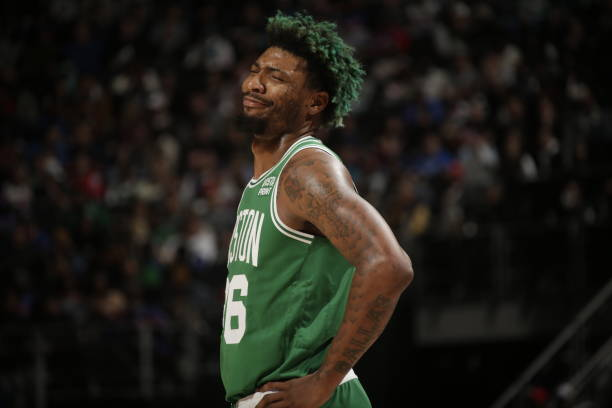Did some research after reading the CBSsports.com article on Celtics Coach, Joe Mazzulla's, game clock strategy. Honestly, it never occurred to me (per Jack Maloney):
The obvious question is why? Everyone is familiar with teams letting the ball roll up the floor in the final seconds of games in order to save time, but why have the Celtics started doing it with minutes remaining? In short, they've discovered a loop hole in the way the clock operates.
In a nutshell, here it is:
1.) The team in possession of the ball after a made-shot by the opposition has eight (8) seconds to get the ball across the half-court line.
2.) But the game clock is running, while the 8-second rule "clock" and the shot clock don't start until an on-court player actually has possession from the in-bounder.
3.) So a team whose final lead is still in doubt can avoid picking the ball up from the floor as long as no opponent forces them to do so - in which case both the 8-second limit and shot clock begin to tick.
4.) So once a player finally picks up the ball (after letting it sit there for a while), he still has eight seconds to get the ball across half court. His team still has 24 seconds to get a shot off. And precious seconds have ticked off from the game clock, helping to allow the team in possession to maintain a slim lead.
So now we know why Marcus Smart occasionally watches the ball sitting on the floor after an in-bounds pass - finally picking it up when a defender gets too close. Who knew?(CBSsports, Jack Maloney):
This could be something the league's competition committee takes a look at during the offseason, but there won't be any rule change mid-season so expect the 9-3 Celtics to continue using this ploy when they have a lead in the fourth quarter -- which will be often. It's just smart basketball.


In the old days, it never really seemed to be specified if the in-bounder had five seconds to simply release the ball, or five seconds for the ball to reach a player on the court. (Also in those old days, you couldn't throw an in-bounds pass from the frontcourt to a player in the backcourt.)
ReplyDeleteIt seemed that most officials used the latter interpretation -- I think I recall times when refs would whistle a violation when the in-bounds pass was in the air.
Given how this rule is now enforced, I "get" why it's being done ... but I don't like it, on multiple fronts. First, it invites the unnecessary physicality we saw the other night. And also, one of these times the defense will decide to stay back (not having a problem with the game being "shortened").
I'm reminded of the infamous 19-18 game from the fifties that's said to have been the impetus for the adoption of the shot clock.
Definitely not entertaining.
ReplyDelete